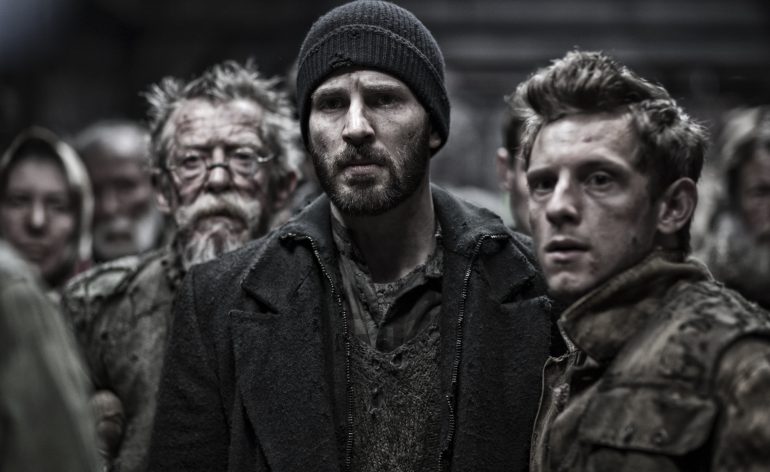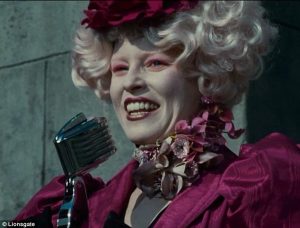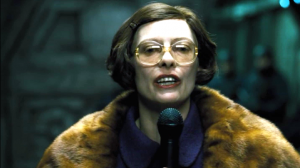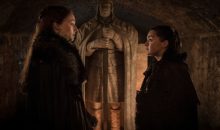Snowpiercer OR Hunger Games on Ice
With Snowpiercer being at least the fourth Chris Evans vehicle I’ve reviewed for Dorkadia. I’m beginning to think this is more than just a passing fixation. It’s probably all just a happy coincidence—Mr. Evans has been in some great films over the past decade, working with very well-known actors and directors. Snowpiercer is no exception, for it co-stars legends Tilda Swindon and Ed Harris and is helmed by famed Korean director Bong Joon-ho (The Host). When he isn’t running around in red, white, and blue tights, Evans takes on a wide variety of projects, ranging from rom-coms (What’s Your Number?) to comic adaptations (Scott Pilgrim vs. the World) to dystopian thrillers (Sunshine).
Snowpiercer combines dystopian thriller with comic adaptation into an intense, if occasionally derivative, film. Based on the French graphic novel Le Transperceneige, Snowpiercer is set in 2031, 17 years after mankind’s attempt to de-escelate global warming caused a sudden and catastrophic cooling of the planet. All life was destroyed, and the last remnants of humanity live in a thousand-car-long train called the Snowpiercer, which circumnavigates the globe, sheltering the survivors of global warming. In the years that followed mankind moving to this constantly moving ark, society has become more stratified than ever. Those in the front cars live the life of luxury (such as it is) while the tail section lives in squalor. Enter Curtis (Evans), who is determined to change all that. While reluctant to lead the other tail section passengers in rebellion, he eventually takes the mantle of leadership in an effort to rescue two children that have been stolen from the tail section on the orders of the train’s creator, the mysterious Wilford.
I call the film derivative because it reminds me of at least three other recent films: Sunshine, The Matrix and The Hunger Games. The idea that mankind is living through a deep freeze is right out of Sunshine, while the train’s severe caste system looks ripped off The Hunger Games. (There’s more than a passing resemblence in both appearence and mannerisms between Tilda Swindon’s Mason and Effie Trinket (Elizabeth Banks) in The Hunger Games.
I blame studio meddling for the similarities; from its Wiki page, the plot of the French graphic novel was quite different. However, the little changes the screenwriters made to the film really hurt the ending, which is straight out of The Matrix: Reloaded. If you’ve seen that film, then once Wilford appears you know exactly how the movie will turn out. The lackluster ending and the film’s inconsistencies keep me from praising Snowpiercer too much. It’s how the movie handles bullets that bothers me. This is a train on which people haven’t had the chance to manufacture much in 17 years; one of the running themes is that cigarettes are nearly extinct. As far as Curtis knows, the security forces in the tail section don’t have bullets for their guns; it’s this belief that kicks off his rebellion. Yet bullets magically appear for all the guns later in the film, the closer to the front Curtis gets. It’s possible bullets were saved for the “more important” guns, but the cavalier way security shoot people without regarding how many bullets they have left leads me to think that bullets are nothing more than a convenient plot point.
Sometimes I learn more about a movie from doing my background research in preparation for writing these Way Too Late articles, which was certainly true for Snowpiercer. I didn’t realize how much of a South Korean film it was until reading the IMDB and Wiki pages. In retrospect, this makes sense, given the themes of the movie. Having spent several years living in Asia, I could identify the main idea of the movie about everyone having their place in society as a very Non-Western one. Bootstrapping is a particularly American concept, where Americans believe in the possibility of rising far above your station. Viewed in this light, Curtis’s actions don’t seem all that out of the ordinary. After all, he’s just trying to make a better life for himself under perceived oppression. Yet it’s his direct actions that finally derail the train, potentially causing all of mankind to become extinct. We aren’t sure this will be the case—the movie ends without showing the full consequences of the train’s derailment. But view from that perspective, was Curtis’s character noble? Or was he selfish? Watch the movie and draw your own conclusions.
tl;drs
Quick summary: Seventeen years after the Earth suffers a global warming catastrophe, all of humanity is confined to the Snowpiercer, a train where social stratification has taken root. Those in the front cars live in luxury, while the back-car passengers live in squalor. After a few of their children are taken by force, Curtis (Chris Evans) leads a group of rebels from the back cars toward the front of the train, to rescue their children and confront the mysterious Wilford.
Too many writers? Five writers sharing three jobs is a bit much. Also, when did “screen story” become a title people used?
Recommended if you like: Post-apocolyptic worlds; telegraphing endings you can see from a mile away
Better than I expected? Special shout-out to supporting cast members Ewen Bremmer (Trainspotting) and Octavia Spencer (The Help), who deliver commanding performances with just a short amount of screen time.
Worse than I hoped? Immediately after I watched this movie the ending bugged me. The internal consistencies didn’t bother me until the next day.
Would it work better in a different medium? A miniseries set in this world might be interesting and give more characters a chance to breathe.
Verdict: Good, but flawed. An interesting ideological study disguised as a dystopian thriller.
Related Reading: Wiki article








